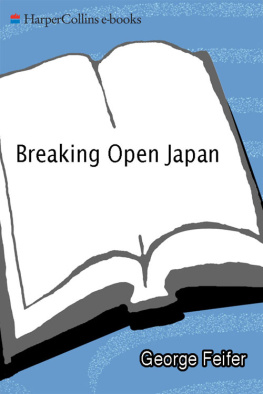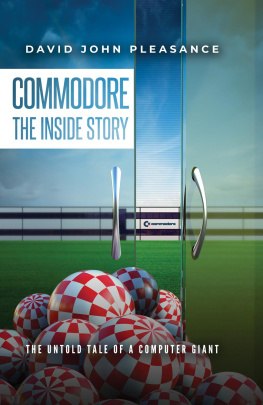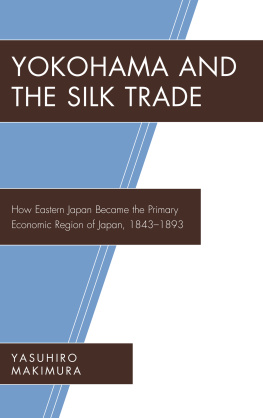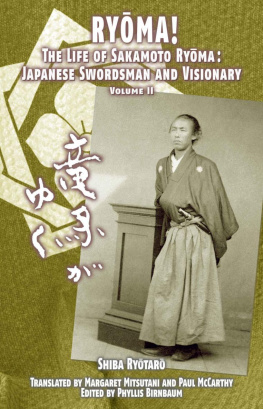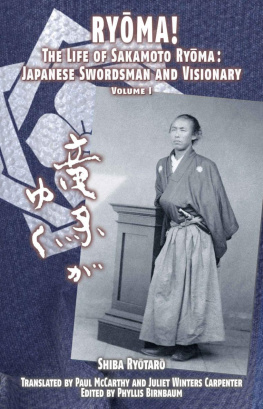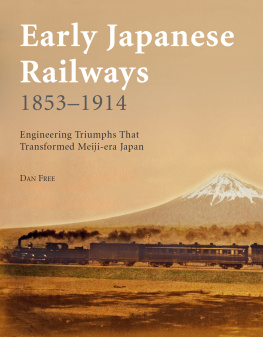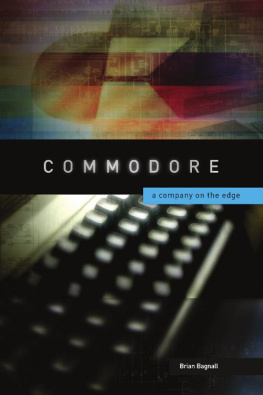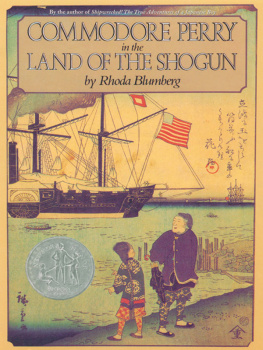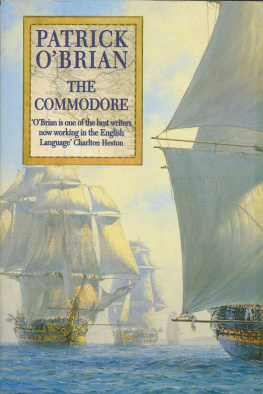for Beautiful Barbara
with gratitude to Professors
Fred Notehelfer, Miwa Kimitada, Kishida Shyu, Matsumoto Kenichi, Steve Rabson, Takara Kurayoshi, Teruya Yoshihiko, and Yamaguchi Eitetsu,
and to
Abe Masamichi, Kishaba Shizuo, and Roxbury, Connecticuts Minor Memorial Library,
and with
loud thanks to talented, assiduous Rob Cowley
Contents


MAJOR HISTORICAL EVENTS NEED RETELLING every twenty-five years or so, an editor friend likes to say, usually without elaborating because he believes the reasons are self-evident. They were to me when he made them so. Even if fresh information about the events doesnt surface during those quarter centuries, younger generations view them with new attitudes, values, and general knowledge, especially about international conflicts. The cooling of passions and slackening of government spins enable more long-term consequences to emerge, including the unintended ones. Later, I came across another way of saying that by Frederick Jackson Turner, an eminent historian of the American West: Each age writes the history of the past anew with reference to the conditions uppermost in its own time.
Those observations much apply to the most important event in Japans modern history. Commodore Matthew Calbraith Perrys opening of the long-isolated country caused much more conflict, if not armed, than most Americans suspect. And although Japan might seem to have less need of a new account because older ones proliferate there, their interpretations also changed with new eras, marked especially by gains in the self-esteem Perry damaged. America, by contrastwhere all of two books about the seemingly remote event remain in printhas essentially assumed nothing new can be said about the gift to Japan, as its overwhelmingly regarded, of Perrys expedition. Surely thats emblematic of our, generally speaking, costly lack of interest in history and popular ignorance of foreign perceptions, although I was as ignorant as anyone about others reaction to the 1853 mission before I stumbled upon hints of it.
Anyway, a good deal is new, even if also old as American history goes. Deeply moved by belief in their new republics virtue and obligations, our great-great-grandfathers were resolved to bring freedom and democracy to a distant people whose inferiority they took for granted. Perrys unabashedly imperialist vision was grounded in that certainty of our inherent good.
I SHOULD HAVE GUESSED the Commodores heroic image never extended beyond America. Much of my adult life has been a lesson not to write about other people without trying to put myself in their shoes. Had I learned it, I might have known, for example, that whatever the feats and suffering of the Japanese and American forces during the Battle of Okinawa, about which I wrote a previous book, the struggles most searing, longest-lasting aspect was the civilian tragedy. But I discovered that only when I visited the island, I thought mainly to see the lay of the battlefields. It took long, dismaying talks with civilian survivors to awaken me to what Id have missed had I not seen their faces as their voices went directly into my ears and, yes, heart.
Okinawa was also where I heard my first hint of resentment of Perry. It was oblique because Im American and Okinawans shy from offending; but the guarded dislike persisted when I prodded, and my navy years may have heightened my curiosity about the then minor mystery. What did the gentle islanders have against the Commodore of the mighty reputation? The answer was never stated outright, and Okinawan authorities continue to honor Perry despite his despicable behavior there. Mainland Japanese sustain their substantial concealing and dissembling about him for somewhat different reasons, related, as the text will attempt to explain, to their proverbial and real discomfort in the presence of Westerners. However, I had great luck during my visits to Japan. A number of generous scholars, most of whom Id traced from their writings or to whom I was introduced, dropped the psychological barriers and took me, I was convinced, into their confidence.
Their talk on their own patch, where they could be themselves, was what awakened me to how much Japanese views of Perry differ from conventional American wisdom and textbook explications. Mainland Japan also continues to honor Commodore Perry, but I believe the largest, most enduring consequence of his intrusion there is a predictable reaction to bullying. Where wouldnt inability to resist a diktat by military superiors cause anxiety and pain?
JAPANESE DOOMSAYERS PREDICTION that submission to Perry would destroy their countrys integrity and culture overstated the damage. Much push for progress, from personal to industrial, entered through the breach punched by the Commodore: good balm for the hurt. Women were permitted to climb Mount Fuji in 1860, seven years after his first landing. Some eight years later, men were given the right to choose their wives and occupations, and the first railroad, from Tokyo to Yokohama, began operating in 1872. Anyway, the opening was surely inevitable, soon to be forced by one country or another, in the same 1853 if a Russian squadron then headed for Japan with the same aim had succeeded.
But if the political, economic, and social consequences proved mixed, grave emotional ones underlay them. For a century and a half now, America and Japan have formed one of the great and enduring alliances of modern times, a glittering Tokyo banquet was told in 2002, on the eve of the 150th anniversary of Perrys arrival. The usual Japanese reaction to such ignorance or insensitivity is silent resignation. That evenings luminaries masked their ridicule in order to spare not only the uncomprehending speaker, George W. Bush, but also the native guests, long practiced in bottling the anger that had been festering during the century and a half of the supposed alliance. Edwin O. Reischauer, a dean of American study of Japan and former ambassador to Tokyo, characterized the real relationship. During the 20th century as a whole, Reischauer said a century after Perrys visit, no country has more consistently regarded itself as in essential conflict with the United States than has Japan.
The South African writer Laurens van der Post thought he knew why: Europeans, with their arrogant assumptions of superiority, had bent Asian lives and spirits to their inflexible will. Van der Post had good reason to reflect about that during World War II. Wasting away in a prisoner-of-war camp, he viewed the Japanese brutality as the proud peoples delayed response to having been forced to live a kind of tranced life in the presence of Westerners who prevented them from being themselves. In the open at last, their long-suppressed protest swept the normally disciplined people into a chaotic mood of revenge.
Did Perrys mission help ignite that appalling eruption? In 2003, Yokohamainto which Uraga, the Japanese town outside of which Perrys ships first anchored, had been incorporatedcommemorated that 150th anniversary of their arrival. A Sunday parade charmed a forty-one-year-old American software engineer employed by a nearby U.S. naval base, but he had no idea what it was for. Perry? He was an explorer, wasnt he? Thats all I know. Of course, he knew vastly more about December 7, 1941. Still living in infamy, the Pearl Harbor attack continued to prompt a Niagara of American memories on paper and celluloid, many in the tone of the commander of one of the demolished airfields: To think that this bunch of little yellow bastards could do this to us when we all knew was that the United States was superior to Japan! Still lacking any notion of why resentment had accumulated, the reaction of most Americans these sixty-five years later remains limited largely to outrage. The gaping perception gulf endures: in Japan, Pearl Harbor is scarcely mentioned and Perrys intrusion is treated as seminal. One of the most widely used high school textbooks devotes three lines to Pearl Harbor and three pages to the national metaphor of Perrys Black Ships and their seemingly black intent.

